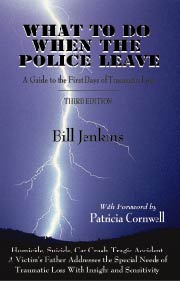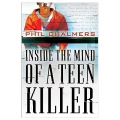Victim: Thomas Wharf, 55
Age at time of murder: 17
Crime location: Boston
Crime date: May 9, 1981
Crimes: Attempted armed robbery & murder
Weapon: Buck knife
Murder method: Stabbing
Convictions: First-degree murder with malice aforethought and extreme atrocity and cruelty.
Sentence: Life without parole (LWOP) later reduced to 15 to life

Summary
Diatchenko stabbed Thomas to death during a robbery attempt. The wounds he inflicted upon Thomas were so severe that a paramedic during the trial described his body as “filleted open. Diatchenko was offered a deal from prosecutors in which he would plead guilty to second-degree murder. But he chose to go to trial and was convicted of first-degree murder and sentenced to LWOP. His appeal lead the Massachusetts Supreme Court to ban juvenile LWOP entirely. Diatchenko was paroled but sent back to prison for violating parole.
Details
Gelzinis: ‘Drunk, punk kid’ seeks forgiveness, freedom
By PETER GELZINIS |
PUBLISHED: October 1, 2014 at 12:00 a.m. | UPDATED: November 18, 2018 at 12:00 a.m.
For the most part, Gregory Diatchenko’s bid for freedom yesterday before the state Parole Board was not perfect.
Diatchenko began his act of contrition by admitting again and again that on the night of May 9, 1981, he was “a 17-year-old drunk, punk kid … a coward, a murderer and a loser” without any respect for life or himself.
Yesterday, his white shirt and tie almost offset the shackles on his wrists and feet, as this former teen killer spoke about how he’s grown older and so much wiser in prison over these past 33 years.
Asking for forgiveness from the family of Thomas Wharf, the man Diatchenko stabbed nine times as he sat behind the wheel of his Cadillac, the convict in the shackles conceded, “I’m not sure I could ever forgive someone who committed such a cowardly act.”
Diatchenko then went on to admit that after stabbing Wharf with a hunting knife and leaving him to die, “I selfishly cut his rear pants pocket like a coward and took his wallet.”
After dispensing with all the horrific stuff, Gregory went on to detail his path toward redemption: high school GED, B.A. from Boston University, devout Buddhist, AA disciple and a working prison plumber for the last 25 years.
He has painted handmade toys for children, joined a prison theater company in a production of “The Man of La Mancha” and served lunch to neighboring groups of senior citizens.
But there came a chilling moment when this journey toward redemption came to a sudden halt. It was when the Parole Board asked Diatchenko to recall the blood-soaked night he butchered Thomas Wharf.
Diatchenko was in Copley Square, hanging out on the steps of the Boston Public Library, when he noticed a driver who’d stopped after his second pass around the block.
“I knew what he wanted,” Diatchenko said, “and I figured OK, I’ll get in and rob this guy. I didn’t set out to stab anyone. But back then, men would proposition you all the time. I was getting sick and tired of it.”
So the then-17-year-old got into the Cadillac, allowed Wharf to drive him to a secluded alley off Beacon Street and then proceeded to stab him as Wharf pressed down on the horn of his car.
What was harrowing about Diatchenko’s recollection is that for a minute or two he seemed to be back there in that alley, wielding a buck knife in a savage homicidal rage at a random stranger.
Thomas Wharf left a wife and child, but nobody appeared to make a statement on his behalf yesterday. But Diatchenko’s mother and stepmother read impassioned pleas on his behalf.
Given that the last three teen killers once sentenced to life have all won parole, the betting here is that the board will roll the dice, and Greg Diatchenko will become a plumber somewhere in Jamaica Plain.
He says he’s no longer that bloodthirsty young punk.
We can only hope so.
COMMONWEALTH vs. GREGORY DIATCHENKO
n the evening of May 9, 1981, at approximately 9:45 P.M., Boston police Officer Peter Jerome received a radio call directing him to an alley at the rear of 860 Beacon Street, near Kenmore Square. When he arrived he saw the victim, Thomas Wharf, slumped unconscious and bleeding in the driver’s seat of a red Cadillac automobile. Wharf was pronounced dead at 10:40 P.M. An autopsy revealed nine stab wounds, including one penetrating the left lung at a depth of four inches and another piercing the heart at a depth of seven inches. The right rear pocket of the victim’s pants had been ripped open.
The Commonwealth presented extensive evidence indicating that the defendant committed the murder. Ronald Gray testified that he saw the defendant alone on Hadassah Way near Park Square in Boston on the night of the stabbing at approximately 8 P.M. Lori Pearlman testified that she was seated at a table in the living room of her apartment at 860 Beacon Street on the night of the stabbing. The table was located next to an open window overlooking the alley where the stabbing occurred. At approximately 9:30 P.M., she heard a loud voice from the alley yell out a few times, “Give me your money, you m—f—.” She telephoned the police and reported what she assumed was a robbery. While she was on the telephone, she heard a car horn sound continuously
Page 720
for approximately five seconds. She next saw someone with blond or light brown hair, wearing a brown leather jacket, run away from the building past parked cars in the alley.
On the same night, at approximately 10:15 P.M., James Ryan was seated at a shelter at the Brookline Village streetcar station. He saw a light-haired young man, carrying a brown leather jacket, walk along the trolley tracks, coming from the direction of the scene of the murder. The young man came into the shelter, sat down beside Ryan, and asked him for a match. Ryan, who noticed that the young man’s hand was covered with blood, asked him if he had cut himself. The young man replied that he had been in a fight and had stabbed someone approximately twenty times. Ryan and the young man spoke for about fifteen minutes and the young man told Ryan that his name was Greg. On the following day, Sunday, May 10, Ryan read an account of the murder in a newspaper. On Monday, May 11, Ryan telephoned the Boston police and told them of his meeting with the young man on the night of the stabbing. Ryan later identified a photograph of the defendant from an array of eleven photographs. The defendant’s fingerprints were found in and on the victim’s car.
An arrest warrant was issued for the defendant. A search of the defendant’s apartment was conducted during the arrest, and a brown leather jacket and a knife were found.
At his trial, the defendant was represented by a privately retained attorney, Mr. William Homans. After the start but before the completion of the empanelling of the jury, the defendant advised the judge that he wished to speak with another attorney. The defendant indicated that he had consulted with another attorney, Mr. Albert Johnson, and asked the judge for “a little more time so [he] could talk to this attorney to see what he has to say.” Since the request was made during the empanelling of the jury, the judge stated that he would not stop the trial but that the defendant could confer with Mr. Johnson when the empanelling was completed.
Page 721
The following day, in a lobby conference, the defendant expressed his wish to change counsel, and the judge discussed the request with Mr. Homans, with the prosecutor, and with a Mr. Thomas May, who is an associate of Mr. Johnson. Mr. May explained that the defendant did not have “any specific complaint, but just a general feeling of discomfort and lack of confidence.” Mr. May also stated that he would need a continuance of at least thirty days in order to prepare adequately for trial. The prosecutor pointed out that the Commonwealth had flown the main witness to Boston from North Carolina and that arrangements had been made to bring the second most important witness down from Maine for the trial. Also, the jury had been empanelled and a bus and police cruiser were outside waiting to take the jury on a view of the scene of the murder. The judge decided that the trial should not be delayed unnecessarily and that Mr. Homans should continue as defense counsel.
The jury returned a verdict of guilty of murder in the first degree. The jurors’ answers to special questions revealed that they found deliberate premeditation and malice aforethought, extreme atrocity and cruelty, and felony-murder (armed robbery). Defense counsel attempted to introduce mitigating factors at the sentencing phase of the trial but the judge refused to consider them. The judge imposed the punishment required under G. L. c. 265, Section 2, life imprisonment without the possibility of parole.
Would You Let This Man Go Free?
Recognizing the emerging science that shows a child’s brain is not fully developed by the age of 18, courts are increasingly reluctant to give teenagers sentences that can never be revisited. But the notion that teenagers should not be held fully responsible for their actions doesn’t sit right with everyone. The victim advocacy group National Organization of Victims of Juvenile Murderers takes issue with what one University of Pennsylvania criminology professor has called “brain overclaim syndrome.” As the group writes on its website, “development is not all one thing—it is complex. It is hormonal, sexual, social, cognitive, emotional. Good judgment and good behavior do not come only from the frontal lobe.”
…
Until then, here’s what we know from his 1981 trial: Greg Diatchenko stabbed Thomas Wharf nine times in the driver’s seat of Wharf’s car. The wounds were so extensive that a paramedic during the trial described Wharf’s body as “filleted open.” Blood was everywhere—the dashboard, the front seat, the driver’s side, the passenger’s side—and when the paramedics opened the driver’s-side door, more blood poured from Wharf’s chest onto the ground. The jury convicted Diatchenko of first-degree murder with malice aforethought and extreme atrocity and cruelty.
Massachusetts top court strikes down life without parole for juveniles
The highest court in Massachusetts Tuesday struck down down life sentences without parole for juveniles as unconstitutional, ruling that applying such sentences against minors was “strikingly similar, in many respects, to the death penalty.”
The decision stems from the case of Gregory Diatchenko, who was 17 when he stabbed Thomas Wharf nine times near Kenmore Square in Boston in 1981. Diatchenko was convicted of first-degree murder and sentenced to a mandatory term of life imprisonment without the possibility of parole. The court ruled Diatchenko, who has served 31 years in prison, was eligible to be considered for parole.











